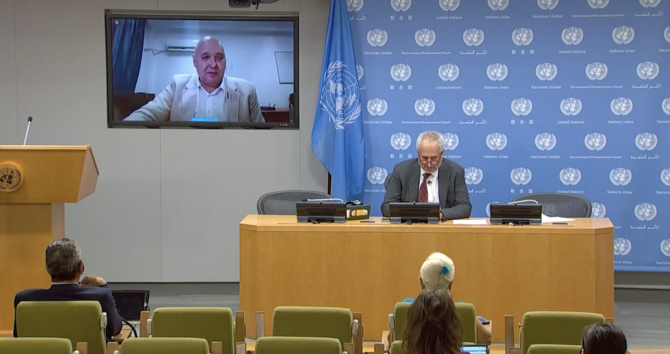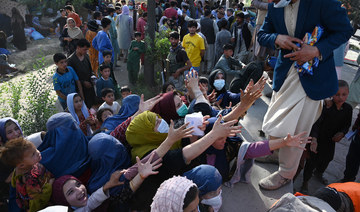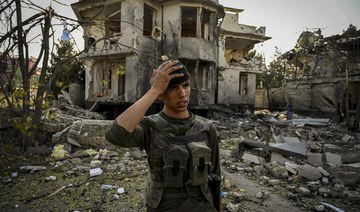LONDON: As many as 4 million Afghans are living in a state of “emergency status” with respect to food security, and $36 million in funding is needed to prevent high levels of acute malnutrition and increased rates of mortality, it was revealed on Tuesday.
Afghanistan is undergoing a “worsening humanitarian situation,” Rein Paulsen, director of the UN Food and Agriculture Organization, said during a press briefing in New York attended by Arab News.
While FAO operations have been able to take place in 31 of Afghanistan’s 34 provinces, as conflict in the country slows down or stops altogether the funding is needed to keep the most vulnerable Afghans alive, he added.
The funding is needed to speed up FAO support for farmers to ensure they do not miss the winter wheat-planting season, and to assist the livelihoods of up to 4 million vulnerable Afghans until the end of the year, Paulsen said.

Afghanistan is undergoing a “worsening humanitarian situation,” Rein Paulsen, director of the UN Food and Agriculture Organization, said. (Screenshot/UNTV)
He added that $150 can provide enough fertilizer and wheat to feed seven Afghans for 12 months.
With tens of millions of Afghans employed in agriculture and relying on its produce, Paulsen said it is “imperative” that action is taken before a “formal documentation” of famine is given in the country.
The crisis is compounded by severe drought in 25 provinces that threatens to endanger 7 million Afghans, as well as the COVID-19 pandemic and a plague of locusts, Paulsen said.
So far this year, the FAO has assisted 2 million of the most vulnerable Afghans through food and cash support, and managed to reach 200,000 in August alone during the intense conflict surrounding the US withdrawal.














